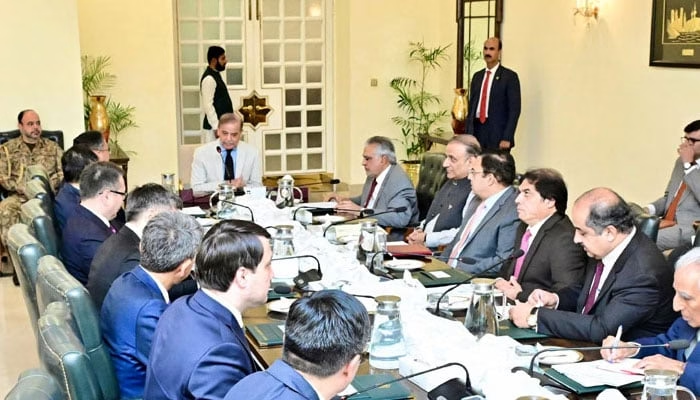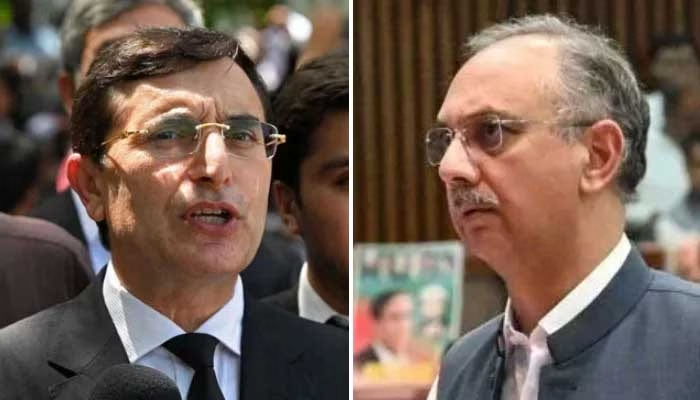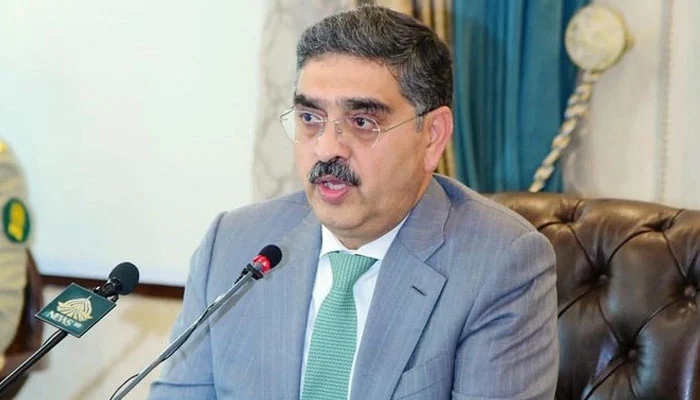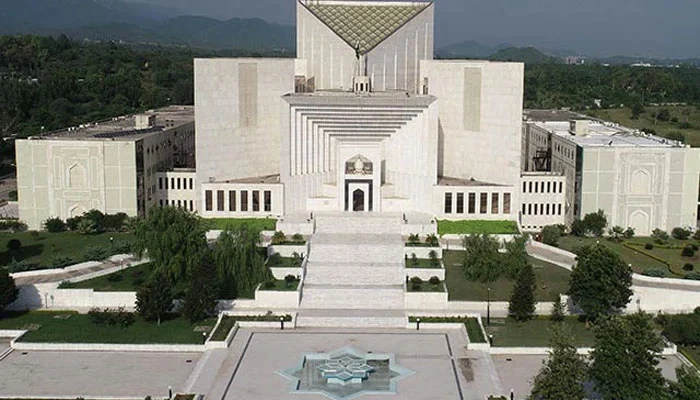Pakistan-Kazakhstan relations are entering a promising new phase as both countries reaffirm their commitment to enhancing trade, investment, connectivity, and people-to-people exchanges. Prime Minister Shehbaz Sharif recently held an important meeting with Kazakhstan’s Deputy Prime Minister and Foreign Minister Murat Nurtleu in Islamabad, signaling a strong mutual desire to elevate bilateral cooperation across multiple sectors.
Pakistan-Kazakhstan Relations: A Shared Vision for Stronger Ties
During the meeting, Prime Minister Shehbaz Sharif expressed Pakistan’s keen interest in deepening Pakistan-Kazakhstan relations through increased trade, air, rail, and road connectivity, and closer economic collaboration. Both countries emphasized their fraternal bonds and common vision for regional prosperity, peace, and development.
The Kazakh deputy prime minister, who is on his first two-day official visit to Pakistan, highlighted that the upcoming visit of President Kassym Jomart-Tokayev to Islamabad would mark a historic moment in Pakistan-Kazakhstan relations. The visit is expected to pave the way for new agreements and Memorandums of Understanding (MoUs) aimed at expanding cooperation in trade, economy, and infrastructure.
Bilateral Trade and Economic Opportunities
One of the central themes of the discussions was trade and economic growth. Pakistan-Kazakhstan relations hold immense potential, particularly in sectors such as energy, agriculture, textiles, and information technology. Currently, trade volume between the two nations remains modest compared to its potential. According to the State Bank of Pakistan, bilateral trade stood at approximately $95 million in 2023, but both sides are eager to scale this figure significantly in the coming years.
To achieve this, leaders from both countries stressed the importance of signing trade agreements, easing visa procedures, and improving transportation routes under initiatives like the Trans-Afghan Corridor. Such measures would not only boost trade but also integrate regional economies more effectively.
Connectivity: Air, Rail, and Road Links
Connectivity was another key focus of the dialogue. Strengthening Pakistan-Kazakhstan relations through improved transportation networks is seen as vital for regional integration. Air connectivity between major cities is expected to be expanded soon, while rail and road links are being explored as part of broader regional initiatives.
Pakistan’s strategic location as a gateway to South Asia, the Middle East, and the Arabian Sea offers Kazakhstan access to key global markets. Similarly, Kazakhstan’s central position in Central Asia can provide Pakistan with greater access to regional trade hubs. This shared vision for enhanced connectivity underscores the importance of long-term collaboration in logistics and infrastructure development.
Strategic and Diplomatic Cooperation
Beyond trade and connectivity, Pakistan-Kazakhstan relations are also being reinforced at the diplomatic level. Prime Minister Shehbaz Sharif extended warm greetings to President Tokayev and expressed Pakistan’s readiness to send a delegation to Astana to finalize pending agreements. The two countries have been in regular discussions for several months, and their leadership has demonstrated strong political will to strengthen their strategic partnership.
Kazakh Deputy Prime Minister Murat Nurtleu praised Pakistan’s hospitality and reiterated his country’s commitment to building a deeper partnership. He noted that the forthcoming visit of President Tokayev would open a “new and exciting chapter” in bilateral relations, setting the stage for a long-term partnership.
Regional and Global Significance
The growing focus on Pakistan-Kazakhstan relations reflects broader regional dynamics. Both countries share a vision of stability and prosperity in Central and South Asia. Enhanced cooperation between Islamabad and Astana can contribute to energy security, counter-terrorism efforts, and regional economic integration.
Moreover, as Pakistan is an active member of the Shanghai Cooperation Organization (SCO), its strengthened partnership with Kazakhstan—a founding member of the SCO—carries broader strategic importance. This cooperation can provide a strong platform for joint initiatives in security, counter-narcotics, and combating regional challenges.
Future Prospects for Pakistan-Kazakhstan Relations
Looking ahead, the future of Pakistan-Kazakhstan relations appears promising. With both governments committed to expanding cooperation, the following areas are expected to see significant progress:
- Trade Expansion: Efforts to increase bilateral trade to over $500 million in the next few years.
- Energy Collaboration: Joint projects in oil, gas, and renewable energy.
- Educational Exchanges: Scholarships and academic collaborations to strengthen people-to-people ties.
- Tourism Development: Promoting cultural exchanges and religious tourism between the two nations.
- Infrastructure Growth: Advancing connectivity projects linking Central and South Asia.
Pakistan-Kazakhstan relations are evolving into a comprehensive partnership driven by shared goals of trade, connectivity, and strategic cooperation. The recent meeting between Prime Minister Shehbaz Sharif and Deputy Prime Minister Murat Nurtleu reflects a strong mutual desire to elevate ties to new heights. As both countries prepare for President Tokayev’s historic visit to Islamabad, the groundwork is being laid for a new era of collaboration that will not only strengthen bilateral ties but also contribute to regional stability and prosperity.
By focusing on trade, infrastructure, and people-to-people exchanges, Pakistan and Kazakhstan are setting the stage for long-term growth and cooperation that can benefit not just the two countries, but the entire region.



